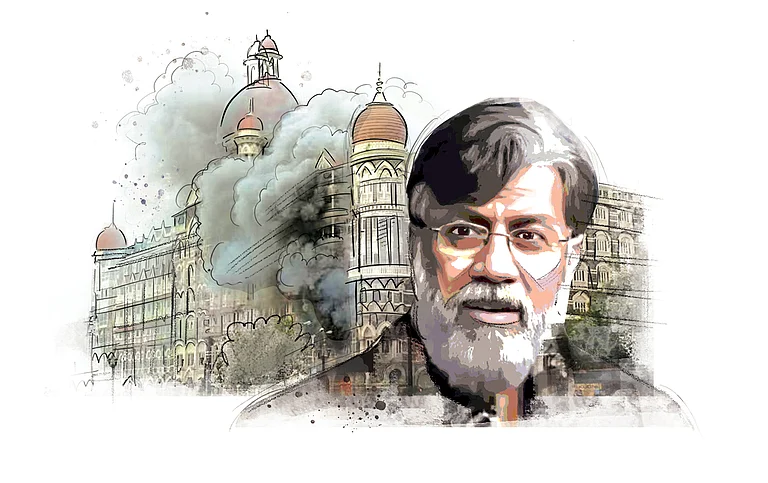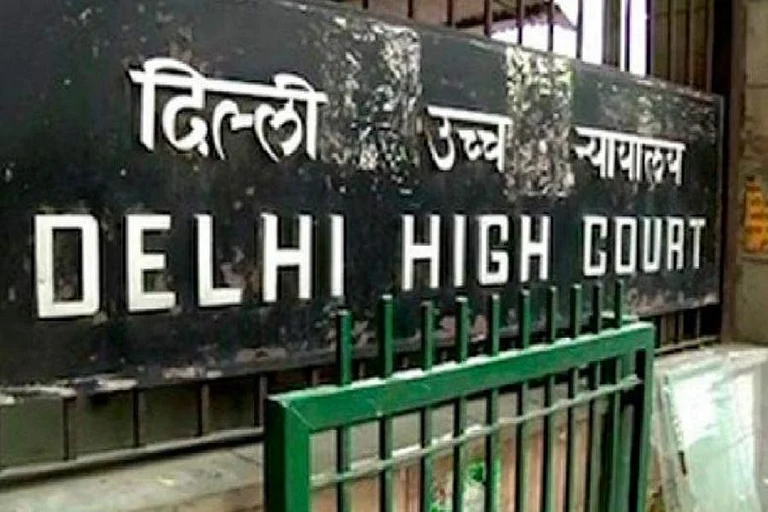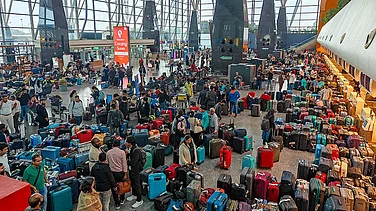
Summary of this article
The Bombay High Court set aside a trial court order that compelled NHAI, MEA, and Delhi Police to hand over classified documents sought by Abu Jundal, calling it “unsustainable.”
The bench said Ansari’s claims about his arrest in Saudi Arabia were irrelevant to the 26/11 case and that his request was “belated and tactical.”
With the stay lifted, the trial for Jundal—accused of training the Mumbai attackers—will now resume after being stalled since 2018.
The Bombay High Court dismissed the plea as a "fishing and roving inquiry," overturning a special court order that required the surrender of private documents to Abu Jundal, also known as Zabiuddin Ansari, who provided the 26/11 Mumbai attackers with Hindi and regional manners training.
The trial has been stayed since 2018 because of the lower court's order, the high court said.
The trial court's 2018 order requiring the Delhi Police, the Ministry of Civil Aviation, and the Ministry of External Affairs to provide some secret records requested by Ansari was overturned on Monday by a bench of Justice R N Laddha.
The trial against Ansari, which had been put on hold since 2018, will now proceed after the high court's decision.
Ansari's requested documents mostly dealt with the events leading up to his arrest and the procedure that brought him under the court's authority.
These documents, which included passports, travel manifests, and immigration records, were "unrelated to the substantive charges," according to the petitioners, who were represented by Solicitor General of India Tushar Mehta.
The records were neither "necessary" nor "desirable" for the fair conclusion of the trial processes, according to Mehta, and their production would "derail the proceedings" by bringing up irrelevant arguments.
Crucially, the High Court noted in its 36-page judgement, made available on Tuesday, that the trial has remained stayed since 2018 due to the lower court order.
Emphasising the need for expediency in serious cases, Justice Laddha said that a timely trial is essential to ensure justice and accountability. The High Court judgment said the trial court (hearing the 26/11 terror attack case against Ansari) "ought not to have invested time in passing an absolutely unsustainable order which is nothing but a fishing and roving inquiry at the behest of the accused”.
Ansari had claimed that he was unauthorisedly detained by the Delhi Police's special cell in June 2012 in Saudi Arabia, where he was residing, and was subsequently brought to India.
As per the special cell, Ansari was arrested from outside Delhi Airport, where he was found loitering.
The passenger manifest of the Jet Airways flight from Dammam to Delhi, the emergency travel document issued by the Ministry of External Affairs, the passports of the Delhi Police officers who had visited Saudi Arabia, and pertinent immigration records were among the documents that Ansari requested.
According to the High Court, once the accused is in legitimate judicial custody and has had a chance to fully defend himself, the location of the arrest becomes significantly irrelevant to the proceedings, especially if the matter is brought up late in the trial.
The Mumbai Police were given custody of Ansari for the trial in the 26/11 terror attacks case, the judge remarked.
The allegations and assertions (about his arrest) made by Ansari pertain exclusively to the case investigated and prosecuted by the Delhi Police's special cell concerning an alleged conspiracy involving terror outfits Jaish-e-Mohammad and Lashkar-e-Taiba, the High Court said.
"It is thus clear that the assertions made by respondent 2 (Ansari) about his alleged wrongful confinement have nothing to do with the trial of the present offence (26/11 terror attacks)," the High Court said.
It added that Ansari has not made any allegations with regard to his custody being handed over to the Mumbai Police in July 2012.
The high court further pointed out that when Ansari was initially brought before the Delhi magistrate for remand, he had not brought up this accusation in relation to his arrest.
After obtaining an order from the Delhi court, the Mumbai Police lawfully took Ansari into custody, the court stated.
According to the court, Ansari's request for the documents seems to be a "belated and tactical" move with no real basis.
According to the court, Ansari is on trial for crimes related to the horrific and unprecedented terrorist attacks that took place in Mumbai on November 26, 2008, which claimed many lives and constituted a serious threat to national security.
"The accused is alleged to have actively conspired in the commission of an offence of a grave nature that has profoundly impacted the sovereignty and integrity of the nation," the High Court said.
It ruled that the trial judge "completely misdirected itself" by invoking a section of the Criminal Procedure Code to compel the production of confidential documents from third parties.
The HC clarified that the section of the CrPC neither confers upon the accused nor empowers the court to initiate a "speculative or exploratory inquiry" into the place of arrest, especially since the inquiry bore no rational nexus to the adjudication of guilt.
The Solicitor General argued that Ansari had not raised any objection to the legality of his arrest at any stage during remand or judicial custody but did so belatedly during trial.
The documents sought by Ansari pertain solely to procedural aspects surrounding his arrest and do not bear upon the merits of the case, Mehta had argued, adding production of such documents would serve no purpose and would instead facilitate a roving and fishing inquiry.
Mehta further said that matters of national security are not within the purview of judicial review and only the executive is best positioned to determine what constitutes national security.
The location and manner of Ansari’s arrest are extraneous and bear no relevance to the determination of his guilt or innocence in the case, Mehta said.
Ansari's counsel, Yug Chaudhary, argued that Ansari was residing in Saudi Arabia, where he was detained by local authorities and then handed over to Indian officials.
In addition to organising the assaults, Ansari is charged with personally training the ten Pakistani terrorists who attacked Mumbai on November 26, 2008, including teaching them Hindi and important information about the city's geography to assist them blend in.
166 people, including foreigners, were killed in the attacks, which were carried out by terrorists who had invaded the financial capital via the Arabian Sea on the evening of November 26, 2008.
According to investigators, Ansari was a major player in handling the terrorists. Ajmal Kasab, the only terrorist apprehended alive, was executed in November 2012 after being found guilty and given a death sentence by a special court in 2010.
With PTI inputs.
























